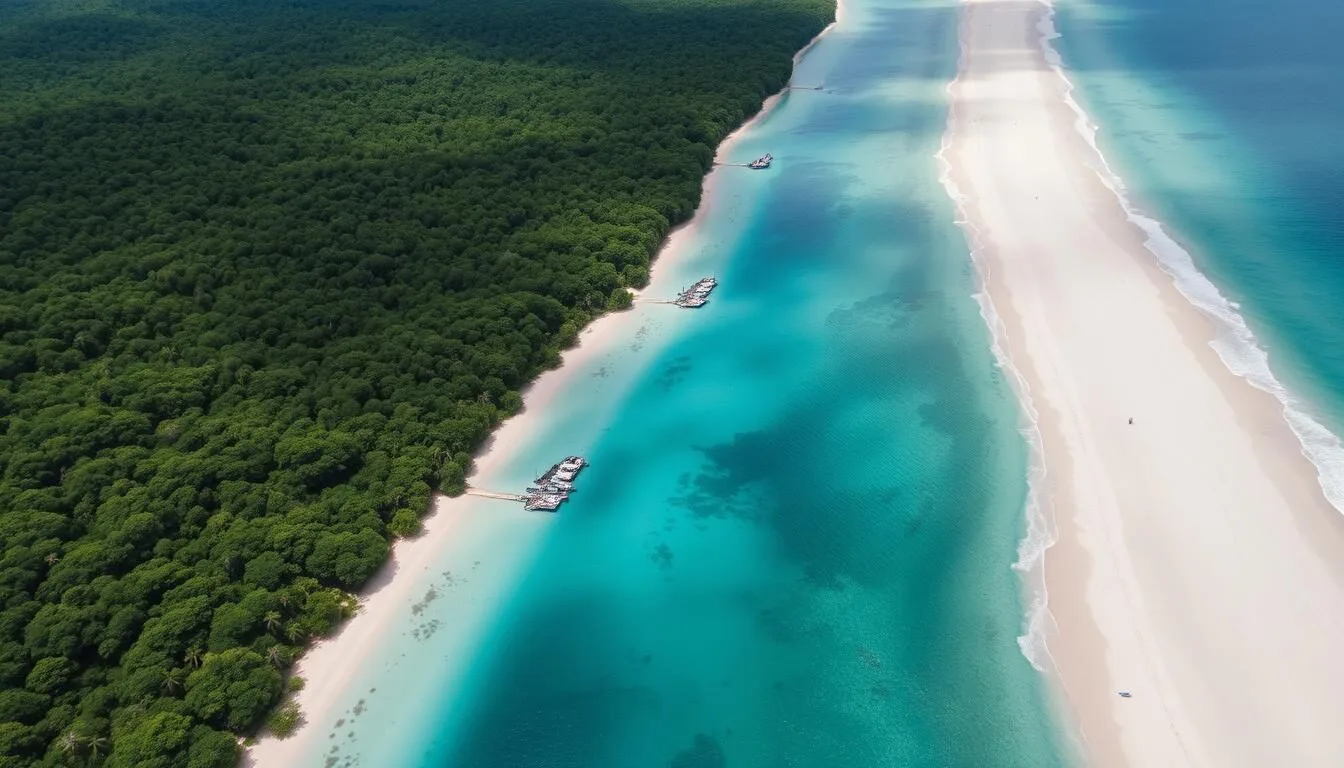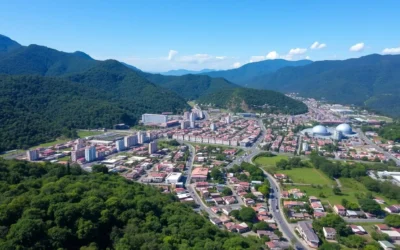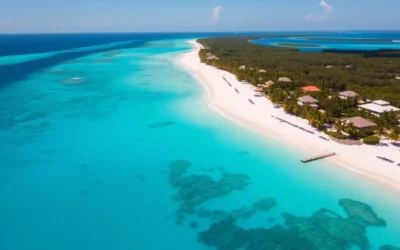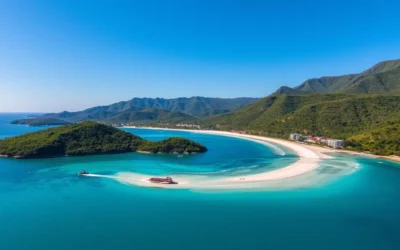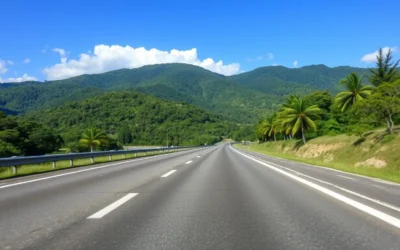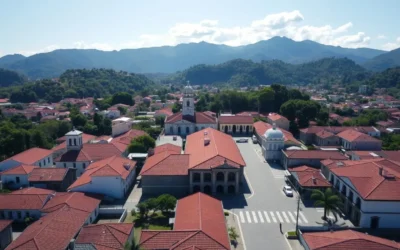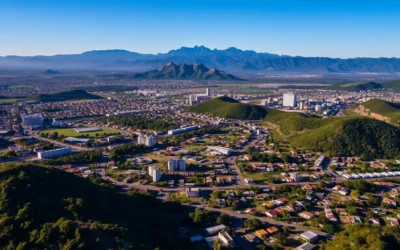Did you know that Jeannette Kawas National Park protects five distinct ecosystems within an area smaller than New York City? This biodiverse gem on Honduras’ northern Caribbean coast is home to howler monkeys, manatees, and over 400 bird species – all thriving together in a stunning mosaic of tropical forests, mangroves, lagoons, coral reefs, and pristine beaches. Named after an environmental activist who gave her life protecting these lands, this park offers travelers a rare glimpse into untouched Central American wilderness just a short boat ride from civilization.
Getting There & Planning Your Journey
Jeannette Kawas National Park (formerly known as Punta Sal) is accessible primarily by boat from the coastal town of Tela, located about 90 km east of San Pedro Sula. Most visitors fly into San Pedro Sula’s Ramón Villeda Morales International Airport, then travel to Tela by bus or rental car.
Plan Your Trip to Jeannette Kawas National Park
Ready to experience this natural paradise? Start by booking your flights to Honduras and arranging local transportation.
The journey to the park involves a 30-minute boat ride from Tela, which can be arranged through local tour operators or your accommodation. The boat trip itself is part of the adventure, offering beautiful coastal views and sometimes dolphin sightings along the way.
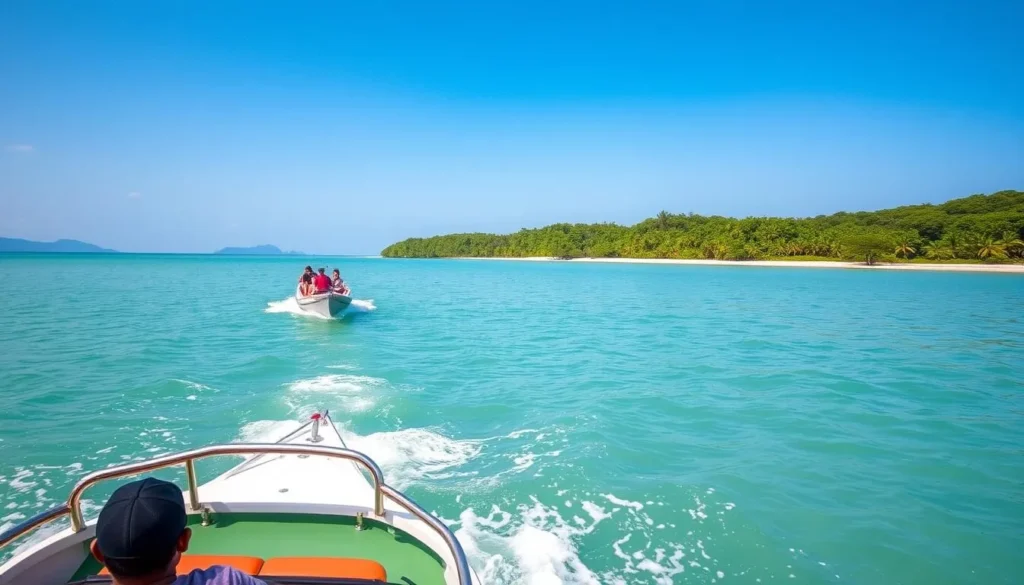
Entry Requirements
The park entrance fee is approximately 200 Lempiras (about $8 USD) per person. Most organized tours include this fee in their package price. The park is managed by the PROLANSATE foundation, which uses these funds for conservation efforts.
“The boat ride to Jeannette Kawas is your first introduction to the natural beauty of Honduras’ Caribbean coast – keep your camera ready for dolphins that often accompany the boats!”
Best Time to Visit & Weather Tips
The dry season from February to June offers the most reliable weather for visiting Jeannette Kawas National Park Honduras. During these months, you’ll enjoy sunny days perfect for hiking, wildlife spotting, and beach activities with minimal rainfall interruption.
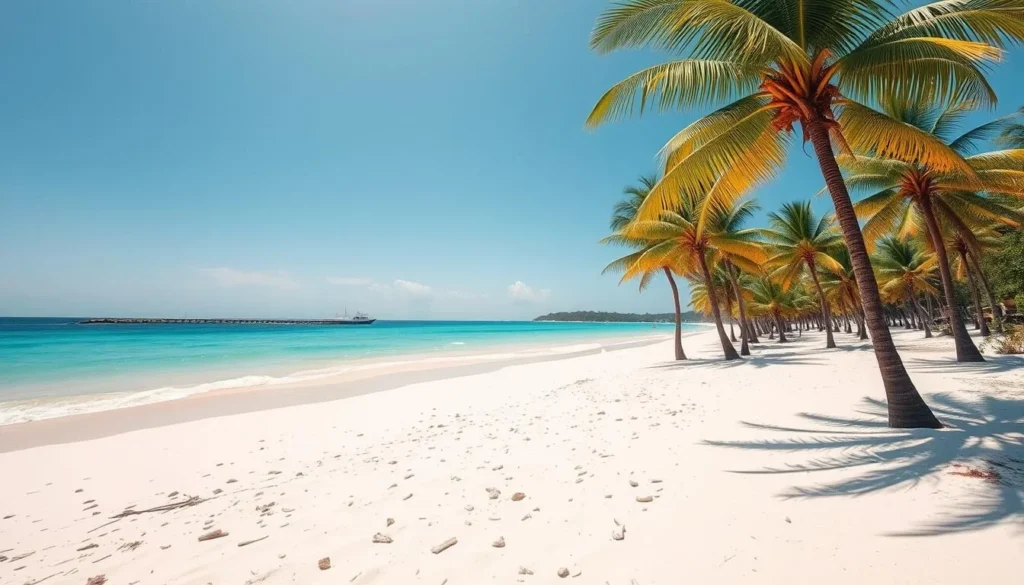
Dry Season (February-June)
- Average temperatures: 75-90°F (24-32°C)
- Minimal rainfall and humidity
- Excellent visibility for snorkeling
- Peak wildlife viewing opportunities
- Higher tourist numbers (still relatively uncrowded)
Rainy Season (July-January)
- Brief, heavy afternoon showers
- Lush, vibrant vegetation
- Fewer visitors and lower prices
- Some trails may be muddy or temporarily closed
- Potential for boat cancellations during storms
Traveler Tip: Even during the dry season, pack a light rain jacket and waterproof bag for electronics. The tropical climate can bring unexpected short showers year-round.
Getting Around Locally
Once you arrive at Jeannette Kawas National Park, exploration is primarily done on foot via hiking trails or by boat around the coastal areas. There are no roads or vehicles within the park itself.
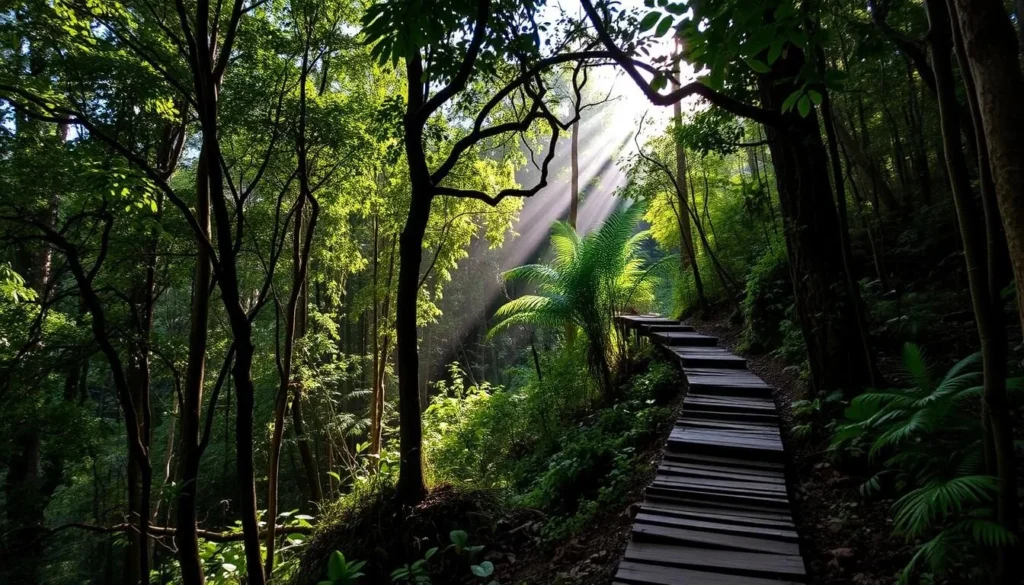
Transportation Options
Guided Hikes
Local guides lead visitors through well-maintained trails, pointing out wildlife and explaining the ecosystem. Guides are mandatory for most trails and enhance the experience with their knowledge.
Boat Tours
Explore the mangrove network and coastal areas by small boat. These tours often include stops at different beaches and snorkeling spots within the park boundaries.
Kayaking
Some tour operators offer kayaking excursions through the mangrove forests, providing a quiet, intimate way to observe wildlife and access narrow waterways.
Where to Stay
While there are no accommodations within Jeannette Kawas National Park itself, the nearby town of Tela offers a range of lodging options to suit different budgets and preferences.
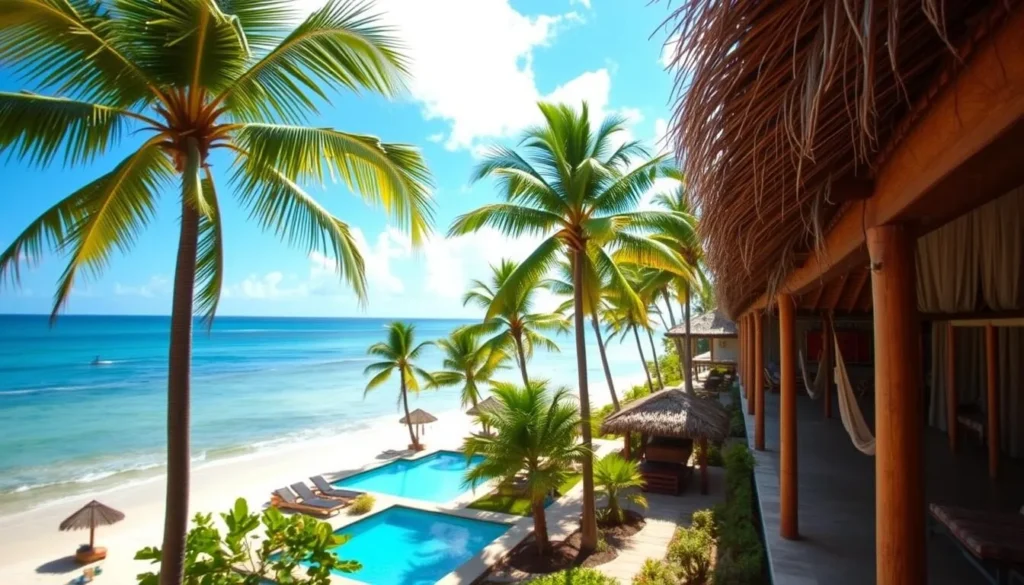
Find Your Perfect Stay in Tela
Browse accommodations ranging from luxury beachfront resorts to budget-friendly guesthouses, all within easy reach of Jeannette Kawas National Park.
Recommended Lodging Options
Luxury
The Indura Beach & Golf Resort offers upscale accommodations with private beach access, multiple pools, and can arrange park tours. Their restaurant serves excellent local and international cuisine.
Mid-Range
Hotel Villas Telamar provides comfortable rooms, a large pool, and is located right on the beach. They have an on-site tour desk that can arrange trips to the national park.
Budget
Maya Vista Hotel and Hostal Guacamaya offer clean, basic accommodations at affordable prices. Both are centrally located in Tela and can connect you with local tour operators.
Planning Tip: Book your accommodation in Tela at least a few days before your park visit and ask if they can arrange your boat transportation to Jeannette Kawas National Park. Many hotels have relationships with reliable tour operators.
Dining & Local Cuisine
There are no restaurants within Jeannette Kawas National Park, so visitors typically bring packed lunches for day trips. Some tours include meals prepared on the beach. In Tela, you’ll find a variety of dining options showcasing Honduras’ delicious coastal cuisine.
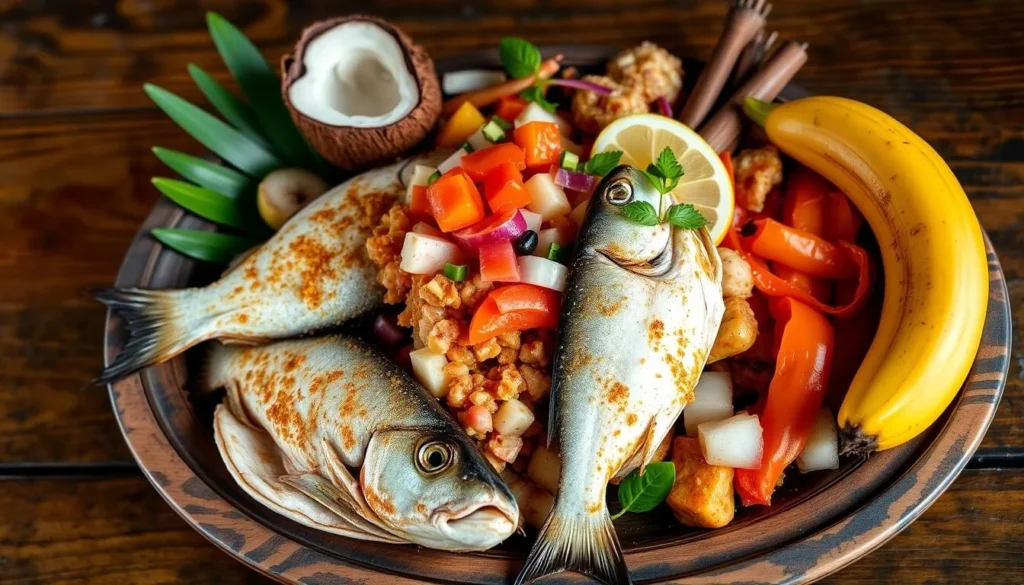
Must-Try Local Dishes
- Sopa de Caracol – Conch soup with coconut milk, plantains, and local spices
- Pescado Frito – Whole fried fish typically served with plantains and beans
- Tajadas con Carne – Fried plantain slices topped with seasoned ground beef and cabbage
- Baleadas – Thick flour tortillas filled with beans, cheese, and cream
- Machuca – Traditional Garifuna dish of mashed plantains with coconut soup and seafood
Dining in Tela
Tela’s restaurants range from casual beachfront eateries to more upscale dining. Many specialize in seafood caught fresh daily and prepared with Caribbean and Garifuna influences. For an authentic experience, try the restaurants in the Garifuna neighborhood of Miami, just east of Tela’s center.
“The seafood in Tela is some of the freshest you’ll find anywhere – often caught the same morning it’s served. Don’t miss trying a traditional Garifuna dish during your stay.”
Attractions, Sightseeing & Activities
Jeannette Kawas National Park Honduras offers a wealth of natural attractions and activities for nature lovers, adventure seekers, and those simply looking to relax on pristine beaches away from crowds.
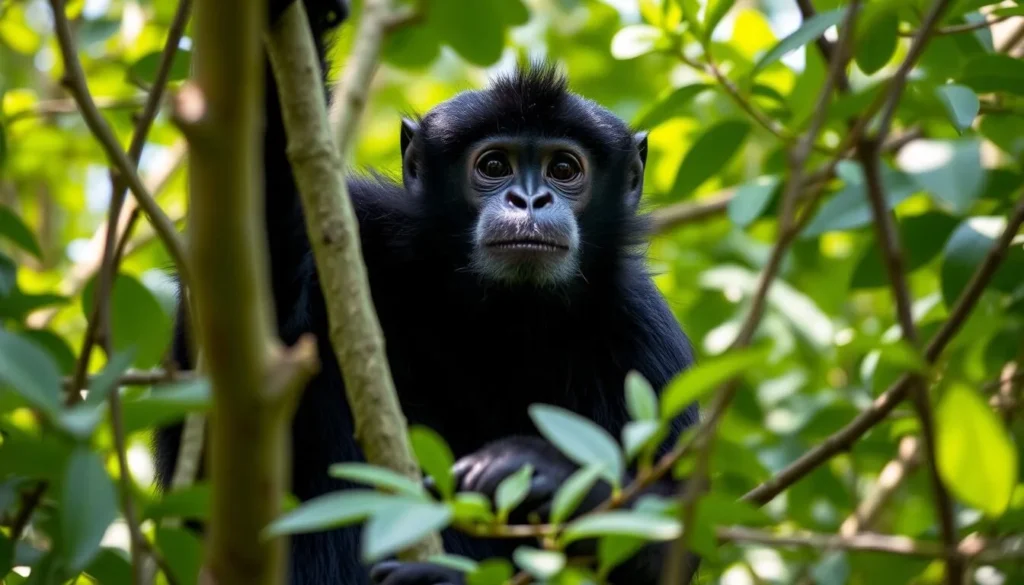
Explore Jeannette Kawas National Park
Discover guided tours that showcase the best of this natural paradise, from wildlife spotting to snorkeling adventures.
Top Attractions
Playa Cocalito
A stunning white-sand beach with crystal-clear waters perfect for swimming and relaxing. The beach is often deserted except for tour groups, giving you a true castaway experience.
Los Micos Lagoon
A large brackish lagoon surrounded by mangrove forests where you can spot numerous bird species, monkeys, and occasionally manatees. Boat tours through the mangrove channels are particularly rewarding.
Coral Reef
The offshore reef offers good snorkeling opportunities with colorful fish, coral formations, and clear visibility, especially during the dry season. Equipment is typically provided on organized tours.
Popular Activities
- Hiking – Several trails wind through the tropical forest, offering opportunities to spot wildlife and enjoy spectacular views
- Snorkeling – Explore the vibrant underwater world along the park’s coral reef
- Bird Watching – Over 400 bird species have been recorded in the park, making it a paradise for birders
- Wildlife Spotting – Look for howler monkeys, white-faced capuchins, iguanas, and numerous tropical birds
- Photography – Capture the stunning landscapes where jungle meets Caribbean Sea
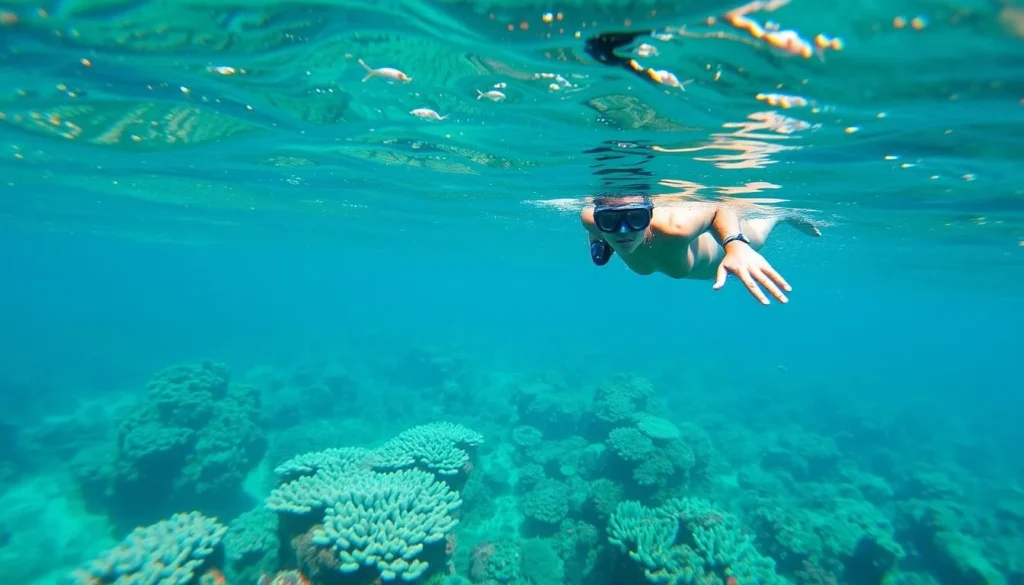
Cultural Experiences & Local Communities
A visit to Jeannette Kawas National Park Honduras offers more than just natural beauty – it’s also an opportunity to learn about the region’s rich cultural heritage, particularly that of the Garifuna people who inhabit coastal communities near the park.

Garifuna Culture
The Garifuna are descendants of West African, Carib, and Arawak people with a unique language, music, dance, and cuisine. The village of Miami, east of Tela, is a Garifuna community where visitors can experience authentic cultural demonstrations, including punta dancing and drumming performances.
Environmental Legacy
The park is named after Jeannette Kawas, an environmental activist who was murdered in 1995 for her work protecting this area from development. Learning about her legacy and the ongoing conservation efforts adds depth to your visit and understanding of the park’s importance.
“The Garifuna culture is recognized by UNESCO as a Masterpiece of the Oral and Intangible Heritage of Humanity. Experiencing their music, dance, and food is an essential part of visiting this region of Honduras.”
Community Tourism
Some tours incorporate visits to local communities where you can support artisans by purchasing handmade crafts, enjoying traditional meals in family homes, or participating in cultural workshops. These experiences provide meaningful connections and direct economic benefits to local residents.
Safety, Etiquette & Local Customs
While Jeannette Kawas National Park Honduras is generally safe for visitors, it’s important to be aware of basic safety precautions and respectful practices during your visit.

Safety Tips
- Always visit the park with authorized guides who know the area well
- Apply reef-safe sunscreen and insect repellent before your visit
- Bring sufficient water to stay hydrated in the tropical climate
- Wear appropriate footwear for hiking on sometimes muddy trails
- Follow your guide’s instructions regarding wildlife encounters
- Check weather forecasts before boat trips, as conditions can change quickly
Environmental Etiquette
Respect the Environment: Take only photos, leave only footprints. Pack out all trash, avoid touching coral when snorkeling, and maintain a respectful distance from wildlife.
Cultural Respect
When interacting with local communities, particularly Garifuna villages:
- Ask permission before taking photos of people
- Learn a few basic Spanish phrases (though many in tourism speak some English)
- Respect religious and cultural sites
- Support local businesses and artisans when possible
Practical Travel Tips
Make the most of your visit to Jeannette Kawas National Park Honduras with these essential tips and recommendations.

What to Pack
Essentials
- Lightweight, quick-dry clothing
- Swimwear and towel
- Hiking shoes or water shoes
- Hat and sunglasses
- Reef-safe sunscreen
- Insect repellent
Recommended Extras
- Waterproof bag for electronics
- Binoculars for wildlife viewing
- Camera with zoom lens
- Reusable water bottle
- Light rain jacket
- Snacks for the day
Communication
Cell service is limited or non-existent within the park. Download offline maps and inform someone of your plans before departing. Most guides and tour operators in Tela speak basic English, though knowing some Spanish phrases is helpful.
Money Matters
The currency in Honduras is the Lempira (HNL). While credit cards are accepted at larger hotels and restaurants in Tela, smaller establishments and tour operators often prefer cash. There are ATMs in Tela, but it’s advisable to bring sufficient cash for your park visit.
Ready for Your Honduran Adventure?
Start planning your trip to Jeannette Kawas National Park with these essential travel services.
Experience the Magic of Jeannette Kawas National Park
From the moment your boat approaches the lush shoreline of Jeannette Kawas National Park Honduras, you’ll understand why this protected area is considered one of Central America’s most precious natural treasures. Whether you’re listening to howler monkeys echo through rainforests, snorkeling among colorful fish in crystal-clear waters, or simply relaxing on a pristine beach far from the crowds, this park offers experiences that connect you deeply with nature.
The park’s accessibility combined with its relatively undiscovered status makes it the perfect destination for travelers seeking authentic natural experiences without extreme adventure requirements. By visiting, you’re not only creating unforgettable memories but also contributing to the conservation efforts that honor Jeannette Kawas’ legacy and help preserve this ecological wonder for future generations.

Your Honduran Adventure Awaits
Ready to hear howler monkeys echo through rainforests by day and fall asleep to Caribbean waves? Your adventure in one of Central America’s most biodiverse parks awaits…
The above is subject to change.
Check back often to TRAVEL.COM for the latest travel tips and deals.
